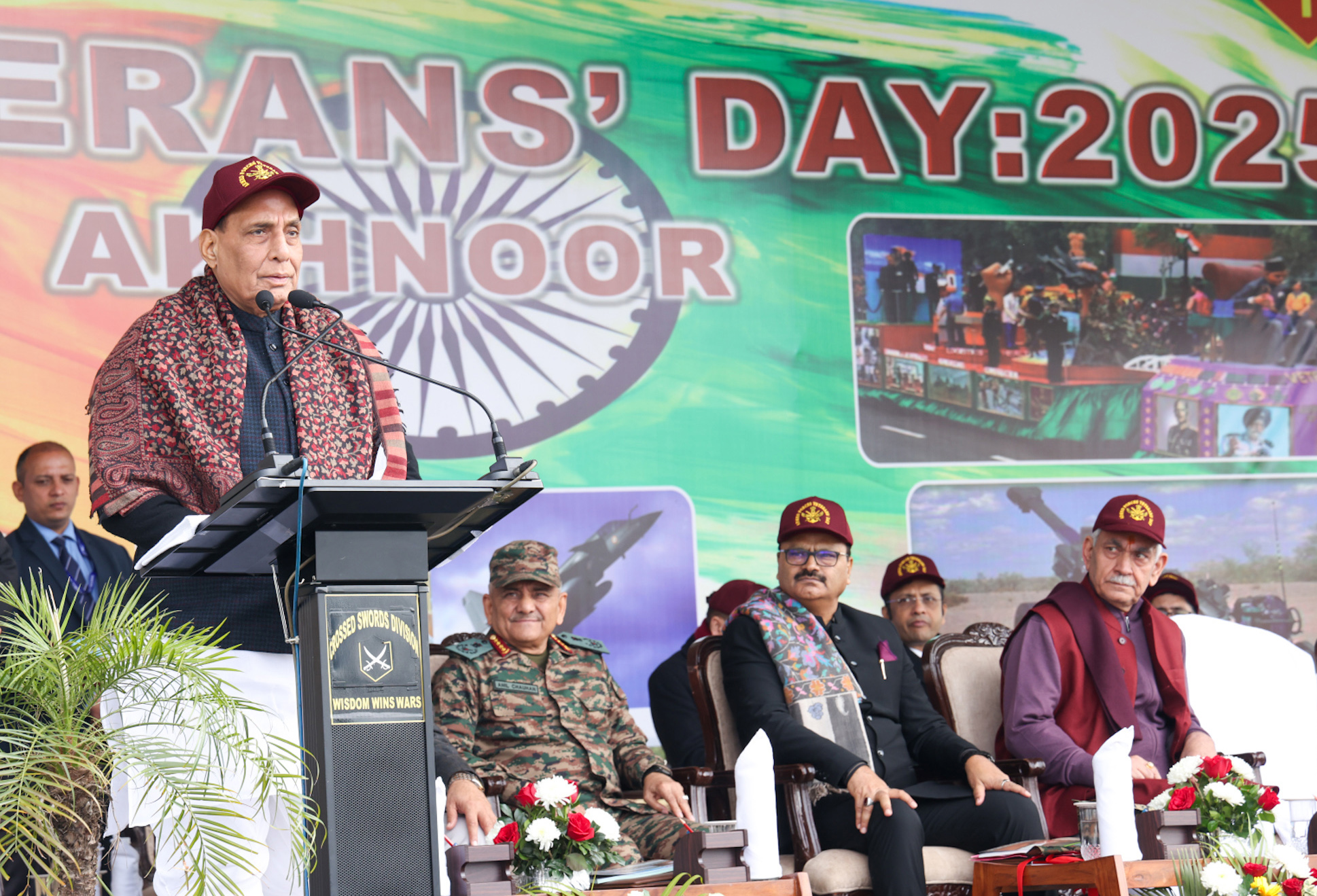JAMMU, Jan 14: On Tuesday, Defence Minister Rajnath Singh unveiled a plan for door-to-door medical services for ex-servicemen and their families living in remote regions of the country via mobile medical units.
He emphasized the government’s dedication to the welfare of armed forces veterans, stating that preparations for this initiative are already underway. “While it may take some time, I assure you that this doorstep service will begin soon.”
Speaking at an Armed Forces Veterans’ Day event in Akhnoor, Singh expressed his appreciation to the veterans and martyrs who protected the nation.
“The government has implemented numerous measures to assist ex-servicemen and their families. I don’t claim that all initiatives are adequate, but this year’s highlight is certainly the launch of mobile medical units for veterans and their families in far-flung areas,” the defence minister shared.
“We have made the decision to provide home delivery of medicines to veterans and their families in remote locales using mobile medical units,” he added.
Addressing approximately 1,000 ex-servicemen at the Tanda Artillery Brigade event, Singh characterized the Veterans’ Day celebrations in Akhnoor as a reminder that Jammu and Kashmir has always been and will continue to be a vital part of India.
He referred to Pakistan-occupied Kashmir as the “crown jewel of India, which is essentially foreign land for Pakistan.”
The defence minister also conveyed warm wishes to veterans and their families on Makar Sankranti, considering them his “larger family.” Reflecting on the importance of Armed Forces Veterans’ Day, he commemorated the bravery and sacrifices of the Indian Armed Forces during the 1965 India-Pakistan war, specifically highlighting the pivotal battle in Akhnoor. This year marks the diamond jubilee of that conflict.
The minister honored the soldiers who made the ultimate sacrifice for the nation, affirming, “The triumph in the 1965 war was a testament to the bravery, courage, and sacrifices of the Indian Armed Forces. Pakistan has consistently lost every conflict it engaged in against India, be it in 1948, 1965, 1971, or the 1999 Kargil war.” “What drives our soldiers to commit everything to the defense of our borders and combat terrorism? It is the profound sense of honor, respect, and national pride that lives within them,” Singh remarked.
Drawing a connection to India’s freedom struggle, Singh honored the sacrifices of legends like Chandrashekhar Azad, Bhagat Singh, and Ashfaqulla, stating, “Their inspiration stemmed from the same sense of honor and pride that motivates our armed forces today. The youth who enlist in the army understand the risks involved. Nevertheless, they are prepared to sacrifice their lives for India’s dignity and security.” He pointed out that since 1965, Pakistan has fostered illegal infiltration and terrorism and attempted to sway the local population in Jammu and Kashmir.
“However, the people here have consistently rejected these efforts. Pakistan continues its terrorism campaign. Presently, over 80 percent of the terrorists crossing into India originate from there. Terrorism could have ceased in 1965 had the then government not transformed the battlefield gains into losses. The situation on the ground has greatly improved since the abrogation of Article 370,” Singh concluded.


Leave a Reply